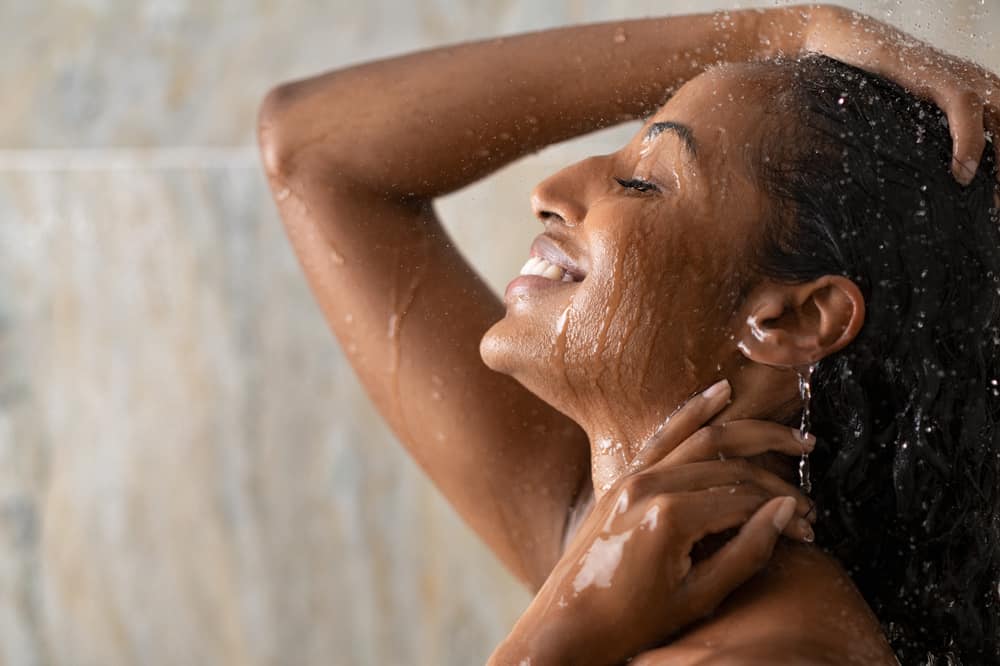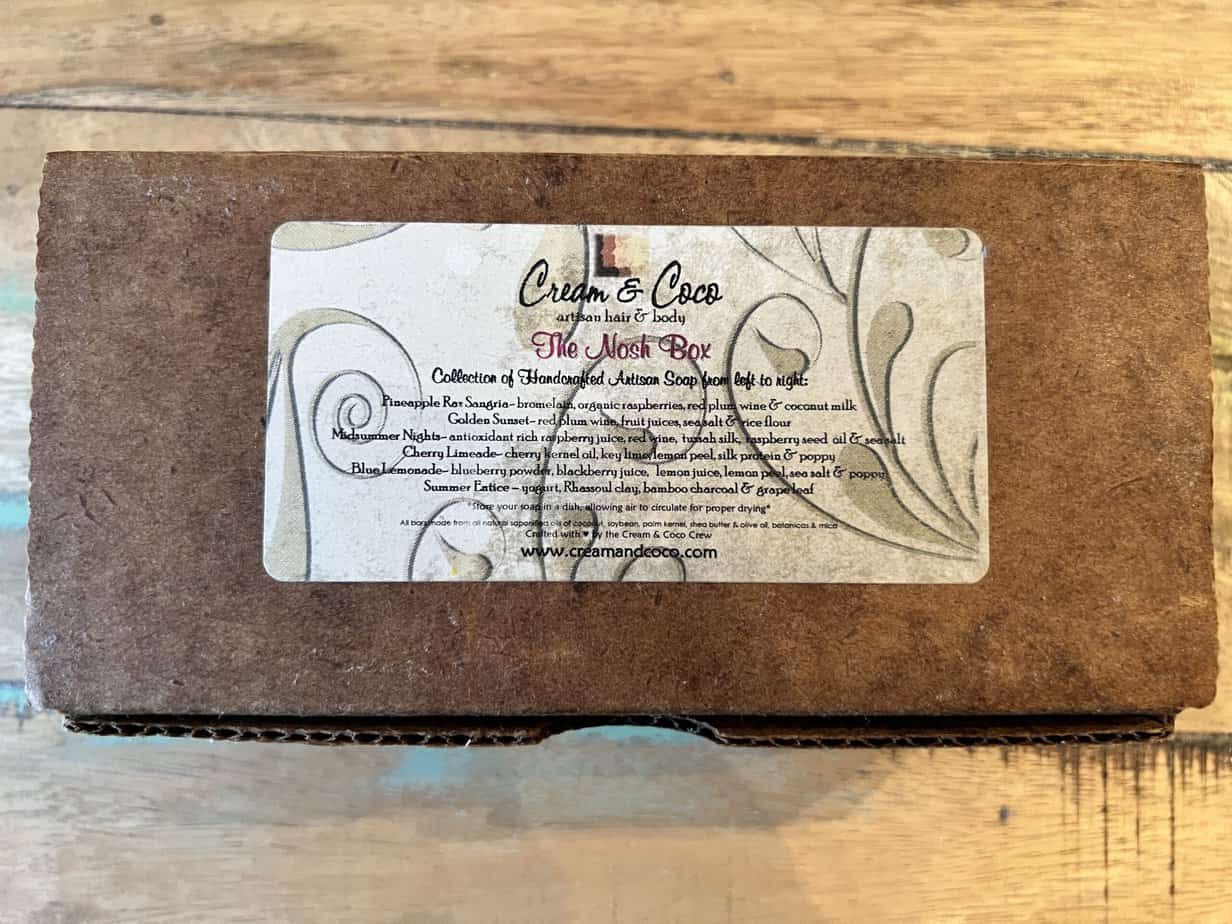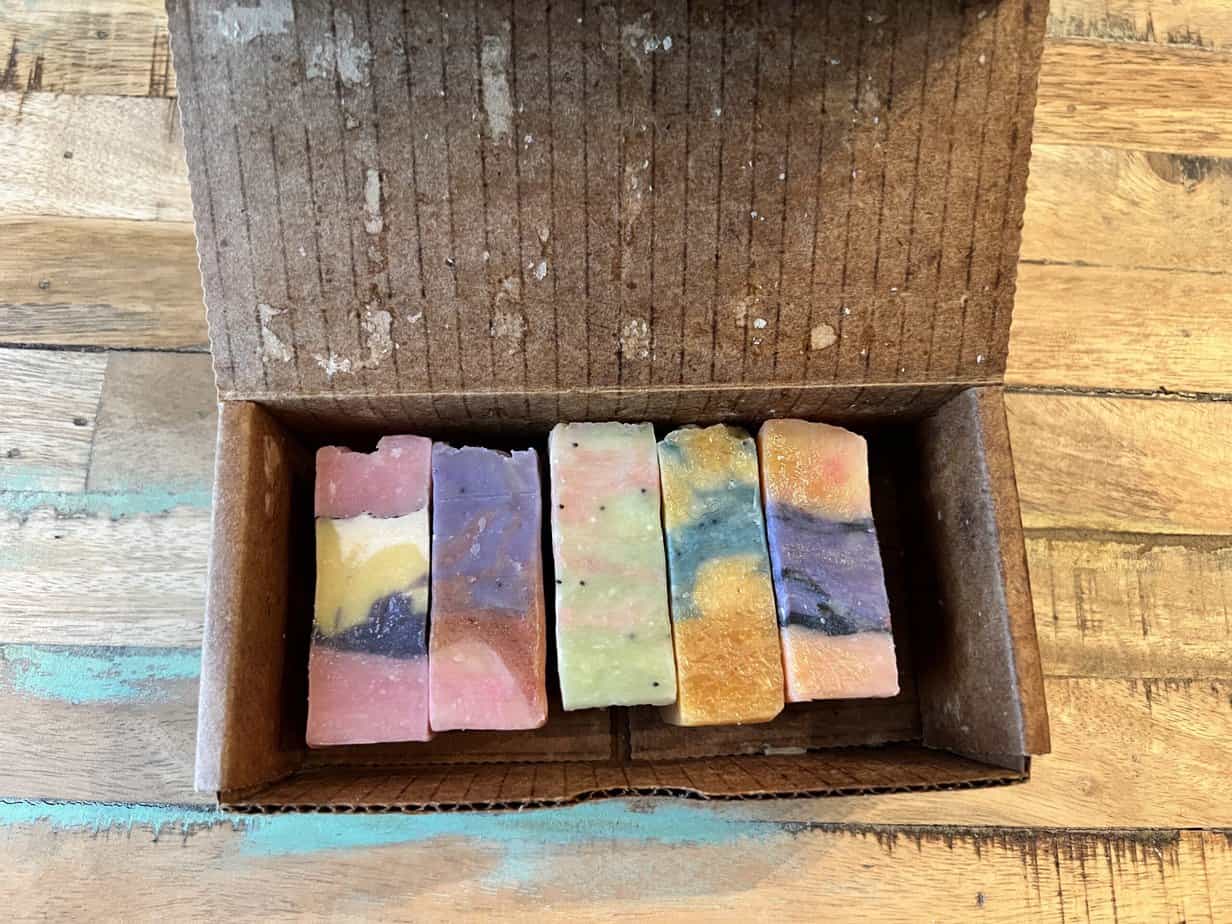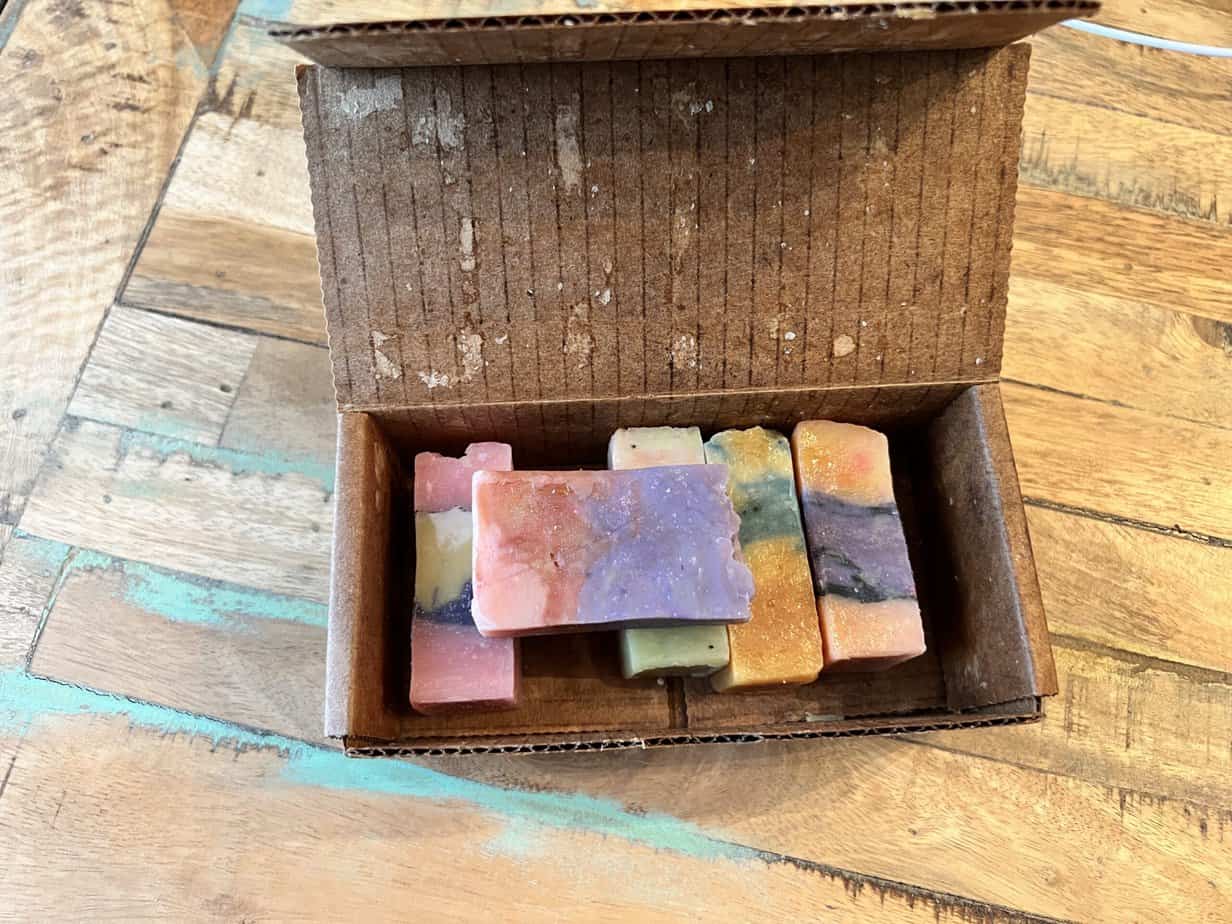
Shampoo bars (or bar shampoo) continue to gain popularity by the day. You may have seen a shampoo bar advertisement or even seen it on the shelf at your favorite retailer.
When it comes to shampoo bars, many have reservations and wonder whether they actually work compared to liquid shampoo. If you’re one of these people, you’re in the right place.
In this article, we’ll give you helpful information about shampoo bars and tell you clearly whether they work or not. Let’s get right into it!
Table of Contents
Do Shampoo Bars Work?
Shampoo bars work exactly like a traditional hair cleanser (e.g., liquid shampoos). Although, it does depend on the manufacturer of the product. Shampoo bars are activated with water, just like bars of hand soap.
To use them, you have to thoroughly wet your hair, rub the soap between your wet hands and then apply the soap from your hands to your hair.
When the shampoo is formulated with cleansers and balancing moisturizers, you can expect an effective shampooing session in most cases.
But it’s important to stress that there are tons of shampoo bars on the market, and each of them has a different formula. So, some may work better than others.

Are Shampoo Bars Good for Hair?
Shampoo bars are good for your hair as they are typically made with natural ingredients such as essential oils and other fresh ingredients. These natural ingredients can help to relieve a dry and itchy scalp, promote hair growth, create volume, increase blood circulation, and promote hair follicle health.
Additionally, many shampoo bars are formulated without harsh chemicals commonly found in traditional liquid shampoos, making them a gentler option for the hair. However, as with any hair product, choosing a shampoo bar formulated for your hair type is essential. You should also use it as directed to avoid potential damage or irritation.

Pineapple Raz Sangria: Bromelain, organic raspberries, red plum wine & coconut milk.
Golden Sunset: Red plum wine, fruit juices, sea salt, & rice flour.
Midsummer Nights: Antioxidant-rich raspberry juice, red wine, tussah silk, raspberry seed oil & sea salt.
Cherry Limeade: Cherry kernel oil, key lime, lemon peel, silk protein & poppy.
Blue Lemonade: Blueberry powder, blackberry juice, lemon juice, lemon peel, sea salt & poppy.
Summer Entice: Yogurt, Rhassol clay, bamboo charcoal, & grape leaf.
What are Shampoo Bars?
A shampoo bar is a hair cleansing product designed to rid your hair and scalp of grease, dirt, and debris. The main thing that differentiates shampoo bars (sometimes called "bar soap for hair") from traditional shampoos is that most shampoo bars tend to come dehydrated in bar form.

Shampoo Bar versus Traditional Liquid Shampoo
Traditional shampoos are liquid and come in a bottle. On average, one shampoo bar is equal to three bottles of traditional shampoo.
Shampoo bars are so appealing because they help reduce plastic waste, enabling you to reduce your eco-footprint. You’ll also save space since you won’t need to store bulky plastic shampoo bottles.
Some Shampoo Bars Don’t Lather
While some shampoo bars create a foamy lather, some do not, which is one of the main reasons people doubt the effectiveness of shampoo bars.
Contrary to popular belief, lathering is not an indication of cleaning action. Some surfactants lather, and some don’t, but this does not mean that the shampoo bar isn’t doing its job.
If you’ll be switching from high-lather shampoo to a non-lathering shampoo bar, you may initially be thrown for a loop when your hair doesn’t lather as you expect.
But as long as you use the bar correctly and it contains surfactants, your hair will be cleansed.
Factors Affecting How Well a Shampoo Bar Works
Now that you know that shampoo bars work, let’s dig a little deeper. Several factors influence shampoo bar effectiveness, and we’ll get into them in the following sections.

pH Level
The pH level of your shampoo has a lot to do with the results you can expect. The pH of your natural hair is between 4.5 and 5.5.
To keep your hair as healthy as possible and leave its cuticles intact, the pH of the shampoo bar should be as close to that range as possible.
If the shampoo bar you choose has a pH that’s too acidic or alkaline, it can cause various issues, including scalp irritation, hair dryness, brittleness, and breakage.
So, shampoo bars that are pH balanced (formulated to have a pH that matches that of your natural hair) are your best bet.

Type and Concentration of Surfactants and Fats
Yet another factor in the effectiveness of shampoo bars is the type of surfactant(s) used. Some surfactants, like sulfates, are extremely harsh to the hair and can even irritate your scalp.
Gentler surfactants like decyl glucoside and cocamidopropyl betaine are used in some shampoo bars in place of sulfates to give you a gentler clean.
The concentration of surfactants is also very important. The surfactant should be present in sufficient amounts to clean your hair but not so much that it dries it out or irritates your scalp.
Fats and oils like shea butter and coconut oil are often used in traditional commercial shampoos and shampoo bars to counteract the negative effects of some surfactants. They leave your hair soft and healthy post-wash.
If your shampoo bar contains a non-sulfate cleanser and nourishing fats and oils, there’s a good chance that it’ll be good for your hair.

Transition to Shampoo Bars
After switching to a shampoo bar, your hair will undergo a transition period for a few days to a month. During the transition period, you may notice that your hair feels a bit coated, especially if you are used to squeaky clean hair.
You could also experience increased frizz. The good thing about the transition period is that it is short - as your hair reacclimates, you’ll notice that it will feel more “normal” after each wash.
Shampoo Bar: Pros and Cons
Now that we’ve driven home the point that shampoo bars do work, let’s get into some pros and cons that you should know about. Knowing the good and bad will help you decide whether you should make the switch to a shampoo bar.

Pros of Shampoo Bars
- Gentleness. Many shampoo bars are gentle to the hair, effectively washing away debris and any chemicals left over from other shampoos without stripping your hair.
- Fewer washes. When you wash your hair with harshly formulated chemical shampoos, your scalp reacts by overproducing sebum, leading to oily hair (an issue for loose curl types). This, of course, leads you to wash your hair more often. Thankfully, when you switch to a gentle shampoo bar, it won’t zap your hair’s natural oils. Therefore, your hair won’t get as oily, and you can wash it less often. This is a major plus!
- All-natural ingredients. The vast majority of shampoo bars are formulated with natural ingredients (and certified organic ingredients), which many curly girls greatly appreciate. Examples include cocoa butter, aloe vera, castor oil, jojoba oil, tea tree oil, argan oil, avocado oil, mango butter, olive oils, and other nourishing ingredients.
- Money savings. Shampoo bars are known to be cost-effective, and this is because they are ultra-concentrated. The average shampoo bar will last you about three times as long as a single bottle of shampoo would.
- Space-saving. Shampoo bars are tiny and portable, making them great for travel and everyday storage since they don't consume much shower space.
- Eco-friendliness. Since shampoo bars replace plastic bottles and don’t require much water during the manufacturing process, they are a winner for the eco-conscious.
Cons of Shampoo Bars
- Transition process. The process of transitioning from regular bottled shampoo to shampoo bars can be daunting, so much so that it scares many people away.
- Expensive upfront. Some shampoo bars are expensive since they last so much longer than regular shampoo. But if you consider how long shampoo bars last, you won’t mind paying a little more upfront.
- Hard water effect. Some shampoo bars don’t perform well when used with hard water, leaving a wax-like residue on the strands. If you live in an area with hard water, it’d be helpful to do some research to find a shampoo bar for hard water.

We’d like to stress that not all shampoo bars are created equal. In the same way that there are harsh, drying conventional shampoos, some shampoo bars (and conditioner bars) do more harm than good.
So, we recommend that you try several shampoo bars to find the one that’s perfect for you and your hair. The best shampoo bars are gentle and contain natural moisturizing ingredients.
As you may have gathered, shampoo bars definitely work. But you may have to go through a transition process where your hair acts wonky after shampoos.
And it’s important to remember that just because one shampoo bar didn’t work for you, it doesn’t mean that none of them will. We hope the information in this article makes it easier to decide whether you should give shampoo bars a try.




